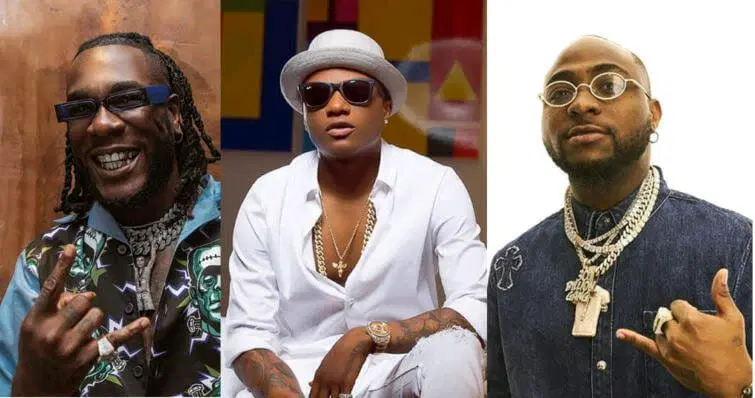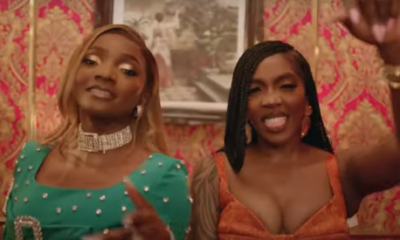Entertainment
Exploring Afrobeats’ journey of a billion streams

African music has always possessed a unique and vibrant character, steeped in rich traditions and diverse cultural influences. Its rhythmic beats, melodic harmonies, and the infusion of indigenous instruments have contributed to its timeless appeal.
However, what is truly remarkable is the current global recognition and embrace of African music. The world has awakened to the continent’s immense talent pool, and African artists are enjoying unprecedented opportunities in the global entertainment market.
This newfound spotlight has not only elevated the careers of established legends like Fela Kuti and Miriam Makeba but has also given a platform to emerging talents who are making waves globally. With collaborations between African and international artists on the rise, the future of African music is exceptionally bright, promising a continued fusion of traditions, innovation, and global influence.
Africa’s musical diversity, from the Afrobeat rhythms of Nigeria to the intricate vocal harmonies of South Africa, has captivated the world’s attention. The globalization of music streaming platforms, the growth of the African diaspora, and the success of blockbuster movies with African soundtracks like “Black Panther” have all played pivotal roles in elevating the global reach of African music.
Moreover, African artists increasingly use their music to address socio-political issues, share their unique stories, and celebrate their cultural heritage. This newfound visibility contributes to the global entertainment market. It fosters cultural exchange, opening doors for a more inclusive and interconnected music industry that draws inspiration from the rich tapestry of African music. As a result, Africa is positioned to influence and shape the global music landscape like never before, offering a vibrant, rhythmic, and diverse soundtrack for the world to embrace.
Since the middle of the 2000s, a new generation has been developing this ever-deepening movement, far from viewing African music as an anthropological study under the divisive umbrella of world music.
Afrobeat is a genre that originated in Nigeria in the 1960s, led by the late great Fela Anikulapo-Kuti, and combines elements of jazz, soul, and Ghanaian highlife with the polyrhythmic drumming of the Yoruba, Ewe, and Ga tribes. It has since spread beyond Africa’s borders.
While Kuti’s music was typically political and orchestral, Afrobeats is frequently upbeat, digitally produced, and sung in English, West African, and pidgin languages.
The release of ‘Oliver Twist’ by D’Banj, the first Afrobeats artist to enter the Official Singles Chart UK Top 10 after signing to Kanye West’s Good Music label, was a watershed moment for Afrobeats in 2012. D’Banj’s catchy track and inspired hook were bolstered by an accompanying video that featured cameos from West, rapper Pusha T, and Congolese-British comedian Eddie Kadi, highlighting the scene’s growing cross-border fandom.
Since then, Afrobeats has been embraced by some of the world’s biggest pop stars. Beyoncé leaned on many of the scene’s leading protagonists for her Grammy-nominated soundtrack album The Lion King: The Gift and there have been hit remix collaborations between Justin Bieber and Wizkid (on the singalong anthem ‘Essence’) and Selena Gomez and Benin City Boy Rema on ‘Calm Down’, Davido and Chris Brown ‘Blow My Mind’.
Now, artistes from Africa are rapidly reshaping the sound and texture of pop music and Afrobeats continue to top chats after it displaced Jamaica Reggae music. Wizkid and Burna Boy, two of Nigeria’s biggest stars, both took home Grammys in the past year, and American pop stars have eagerly tapped into the scene. After a dazzling appearance on Drake’s Certified Lover Boy, fellow Nigerian, Tems, delivered one of the year’s best records with her EP, ‘If Orange Was a Place’. Davido continues to shine like a million stars on the world stage.
In recent years, Afrobeats has crossed over to the mainstream, its biggest stars filling stadiums and infiltrating airwaves across Europe and the U.S. Its global popularity has been marked by Grammy wins, viral dance videos and sold-out arena tours. In June this year, Afrobeats’ superstar Burna Boy played in London’s 80,000-seat Stadium.
The rise in Afrobeats is not without the support of audio streaming platforms, which have contributed immensely to the growth of the genre with the genre moving from two billion to 13.5 billion streams per year since 2007.
The latest promotion of the genre is the recent launch of Afrobeats: Journey of a Billion Streams by Spotify.
Afrobeats: Journey of a Billion Streams will have five key pillars; Origins, which explores the genres that acted as precursors of Afrobeats as we know it, including Afrobeat, Highlife and Juju, among others. The second pillar will be Evolution, and which industry players contributed to the current Afrobeats sound that the whole world cannot seem to get enough of.
The fusion of Afrobeats with genres such as Reggaeton, Amapiano and others and their impact on Afrobeats’ success story will be the third pillar. Cultural exportation, especially to countries outside Africa and Afrobeats’ role in this through music, food, language and fashion lenses will be the fourth pillar. The fifth pillar will focus on the Women of Afrobeats, shedding light on some of the key female figures whose contributions to the industry propelled the genre to its current status as a global sensation.
The site will include key Afrobeats timelines over the years, interesting Spotify data, excerpts from interviews with industry experts and man-on-the-street videos from key markets in Sub-Saharan Africa.
The site will act as a repository for this cultural phenomenon housing text, infographics and visual elements, including Spotify streaming data and results from the Spotify-commissioned April 2023 Afrobeats survey. The survey, conducted by research firm Kuvora, tracks the rise of Afrobeats and its cultural impact over decades.
The site will be updated on a biweekly basis for the next eight weeks but will remain active beyond this as an always-on resource, with frequent updates on new Afrobeats moments. It will also include an interactive experience for fans to discover and connect with new knowledge on Afrobeats.
Speaking on the initiative, Spotify’s Managing Director for Sub-Saharan Africa, Jocelyne Muhutu-Remy, said: “There is no doubt that Afrobeats as a genre is here to stay, and will only continue to shatter more ceilings. In 2023 alone, the genre has been played for more than 223 million hours with streams exceeding 7.1 billion on Spotify. We created this site for both new and longtime fans of the genre, who would like to have a better understanding of how and where this explosive sound came to be.”












